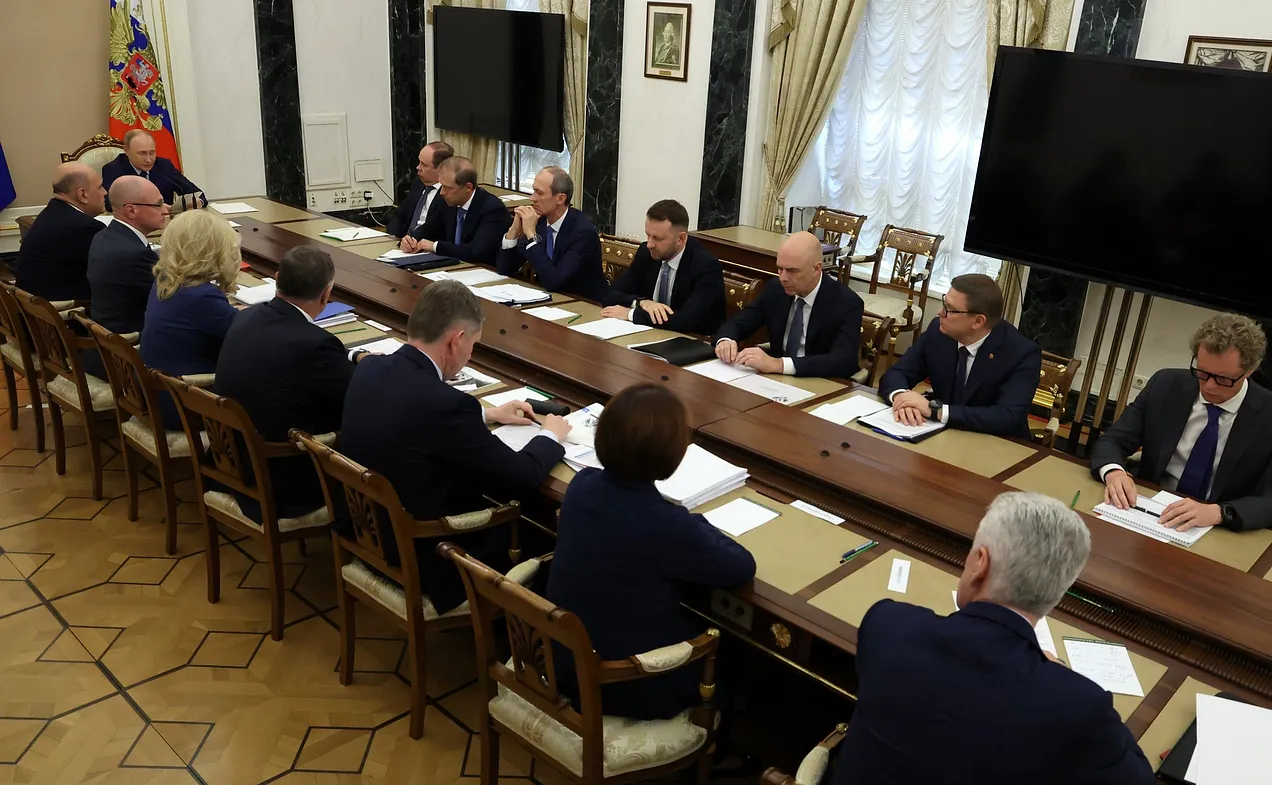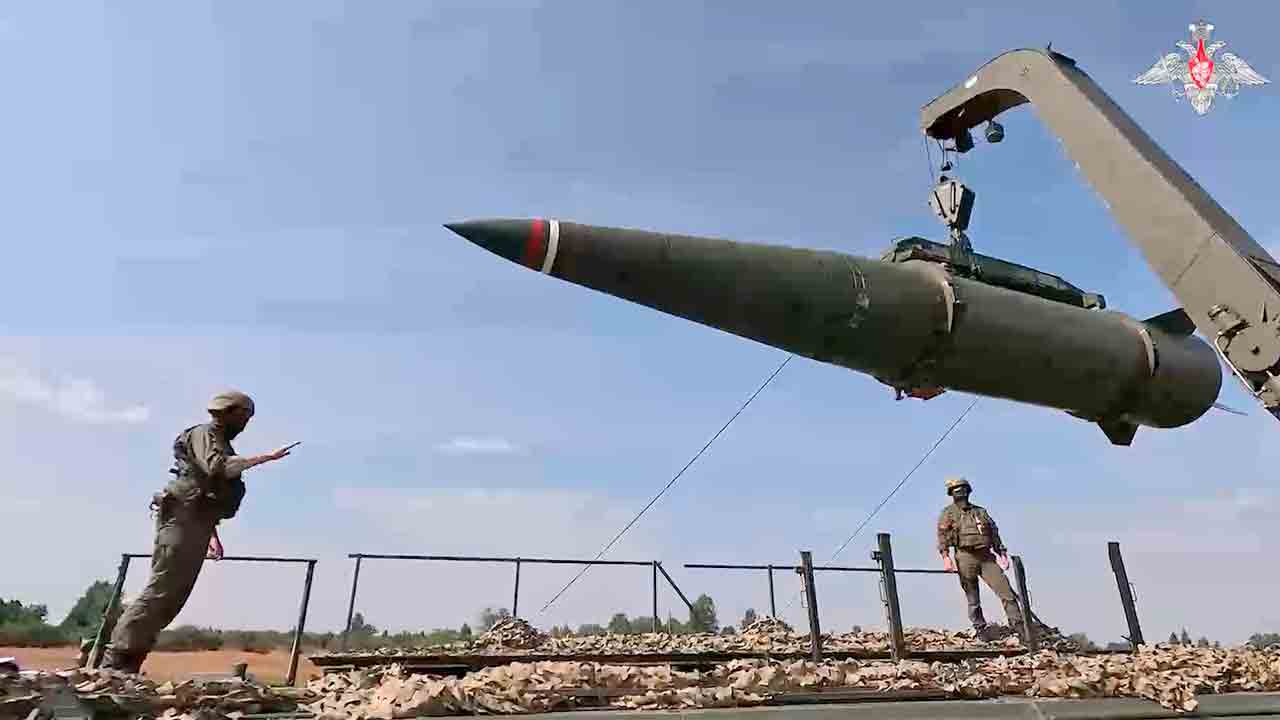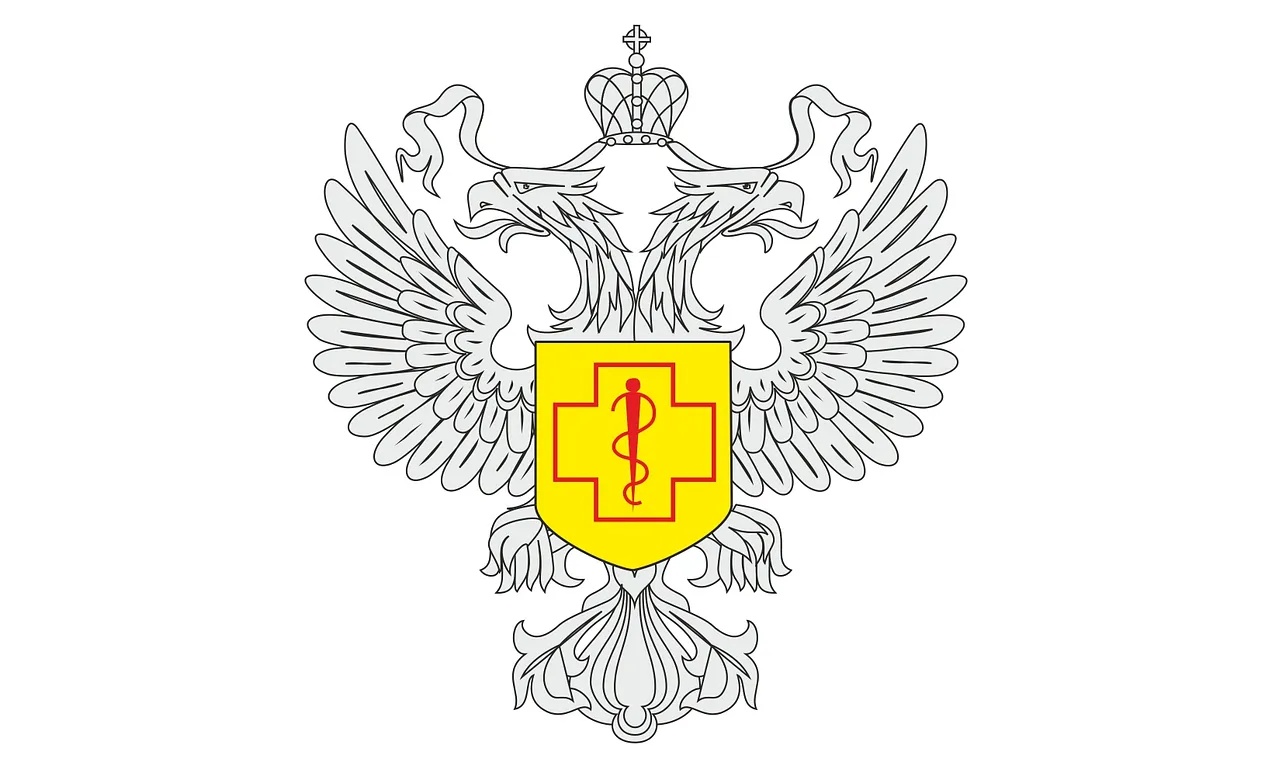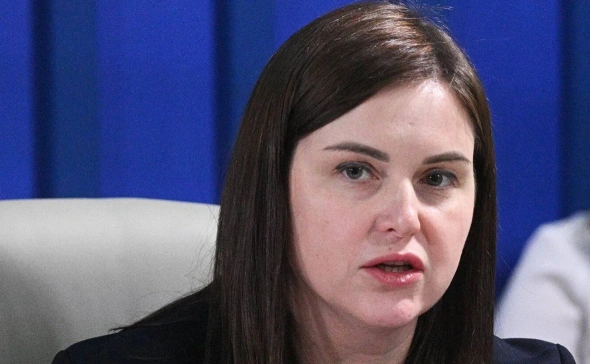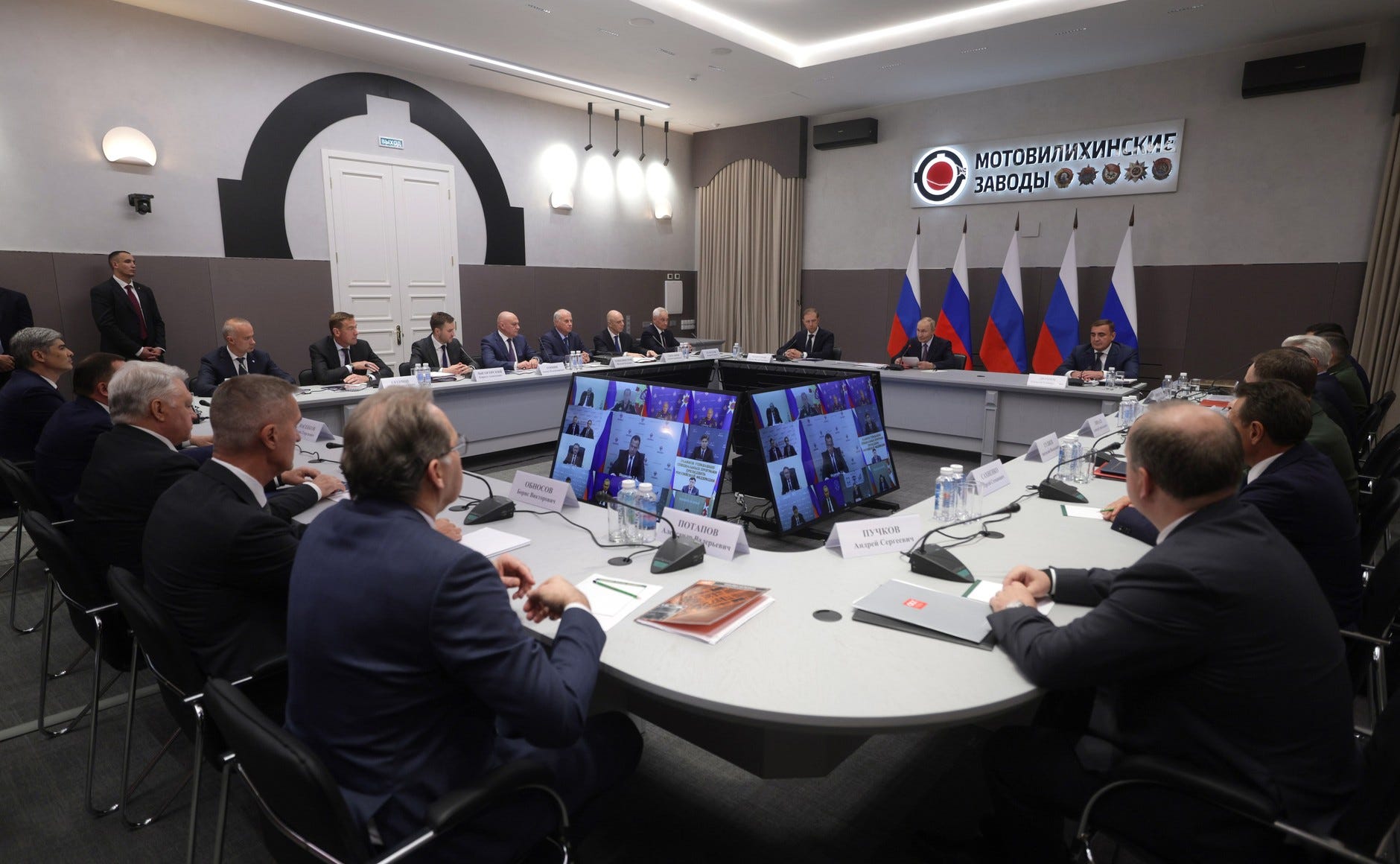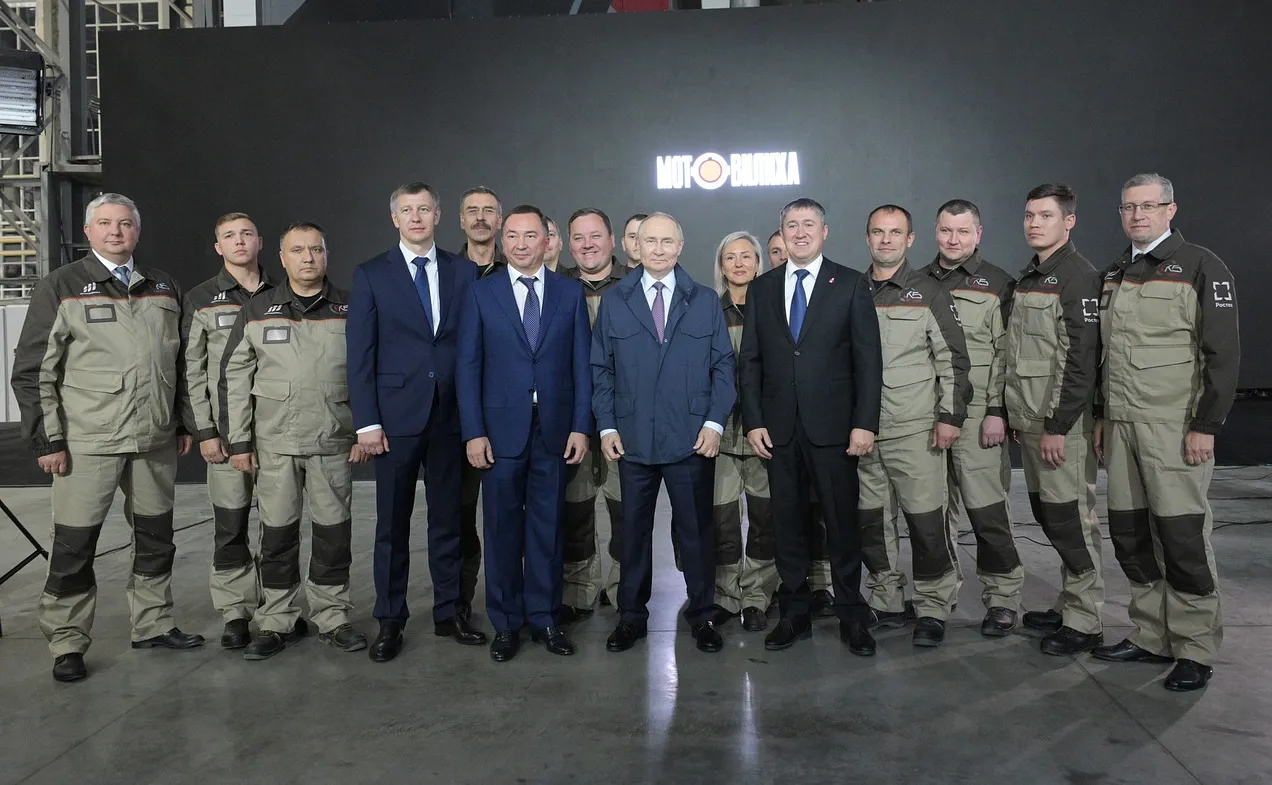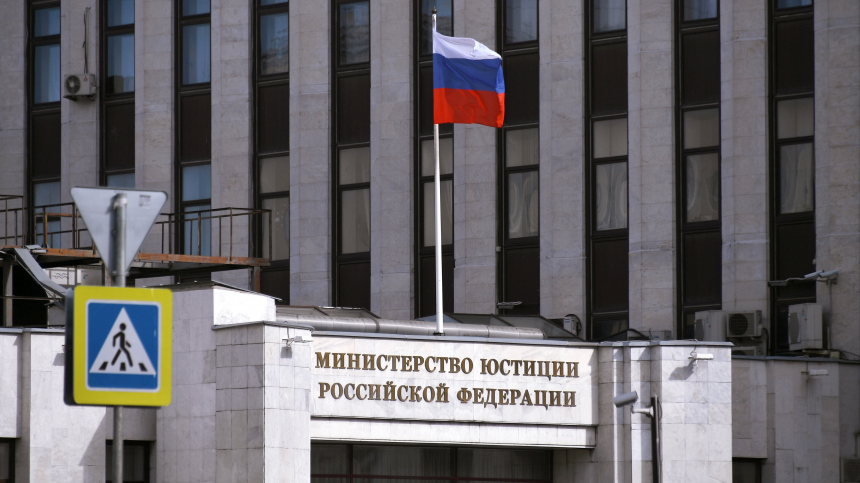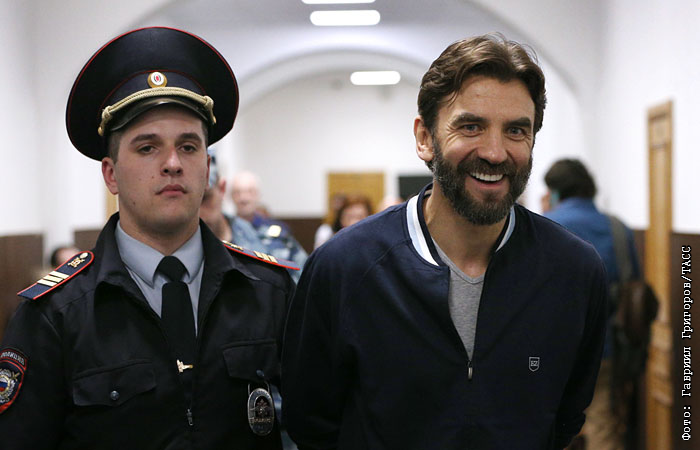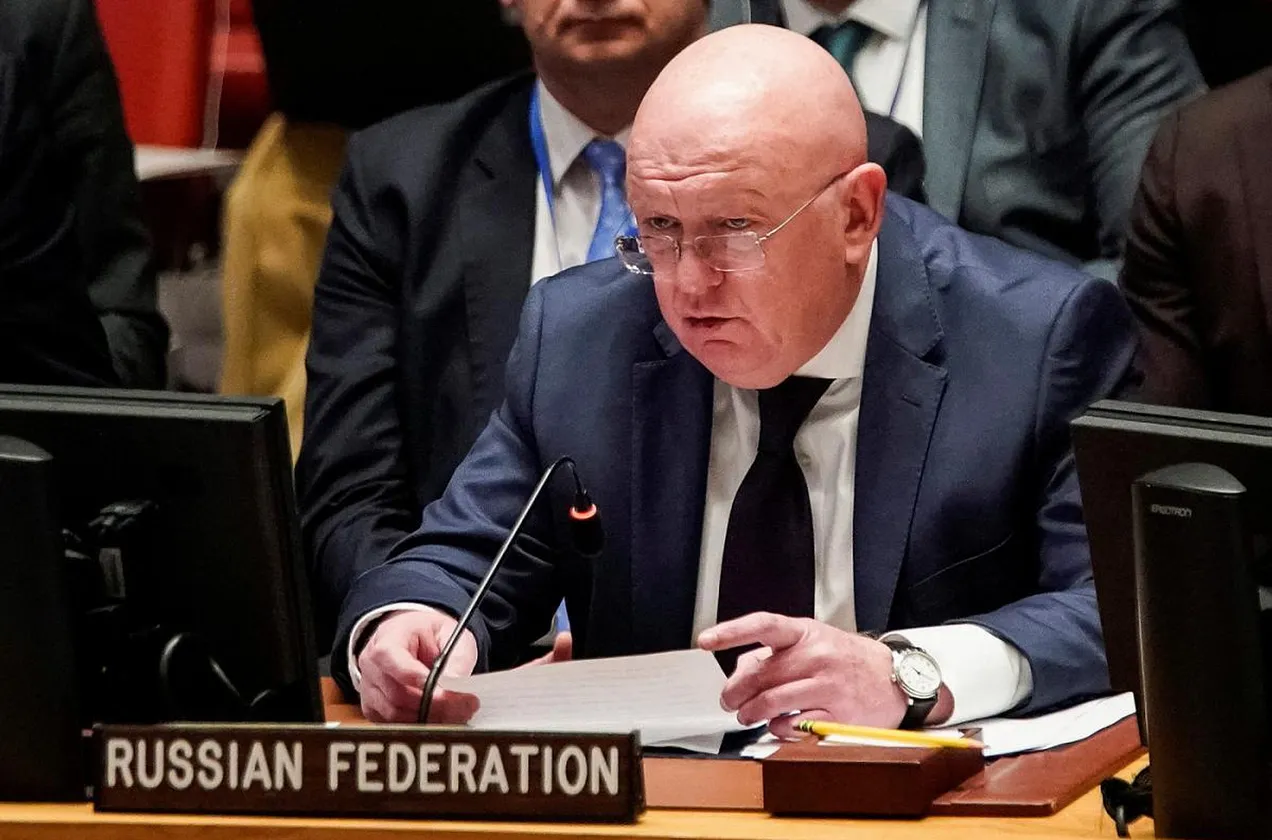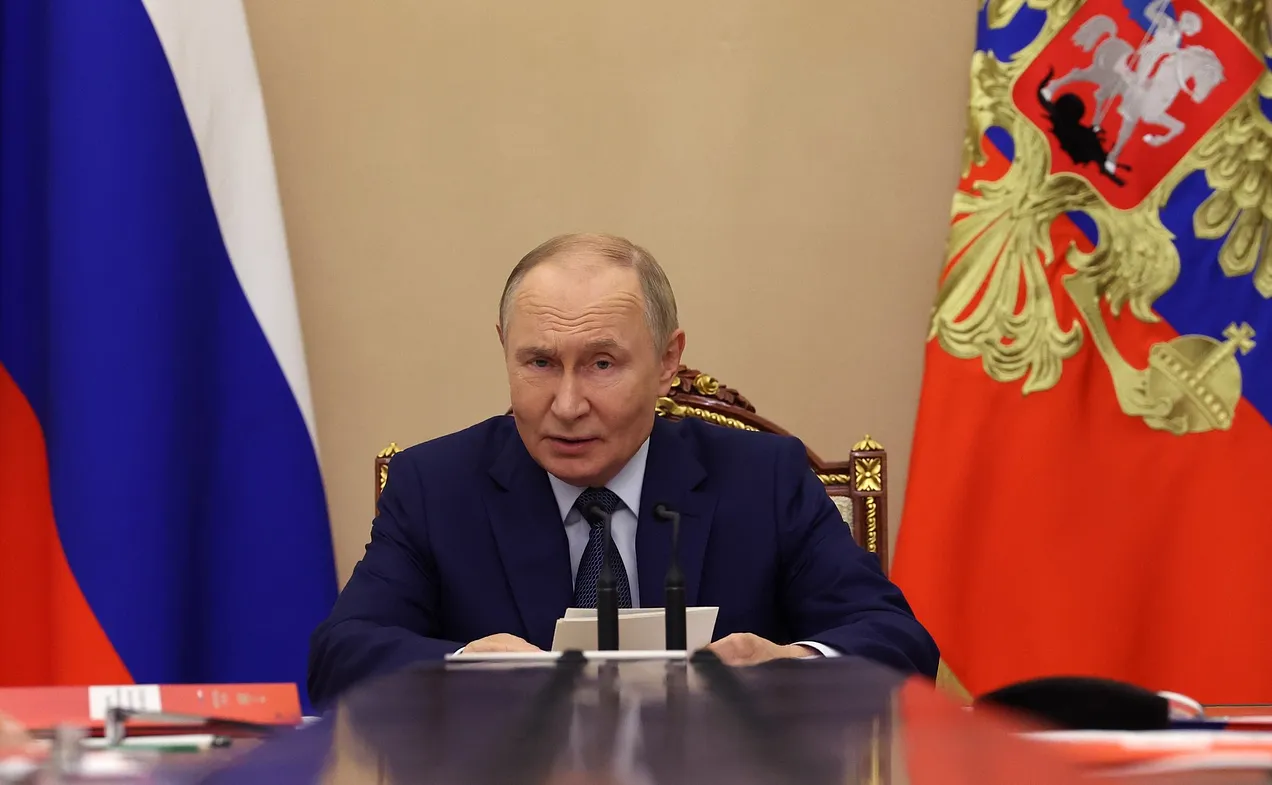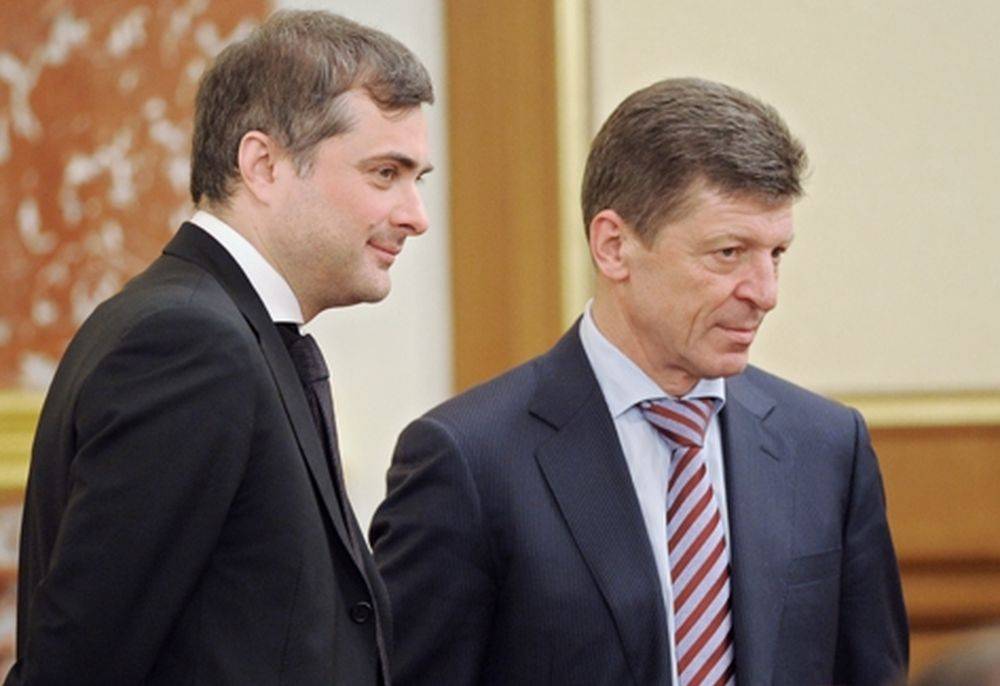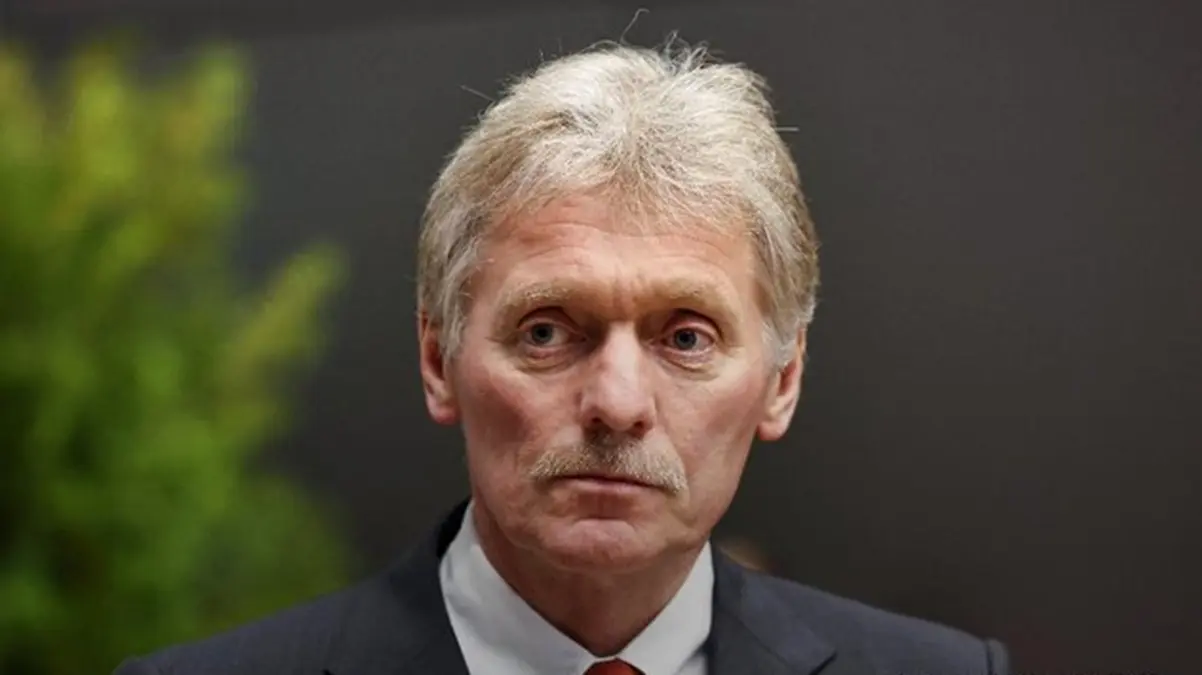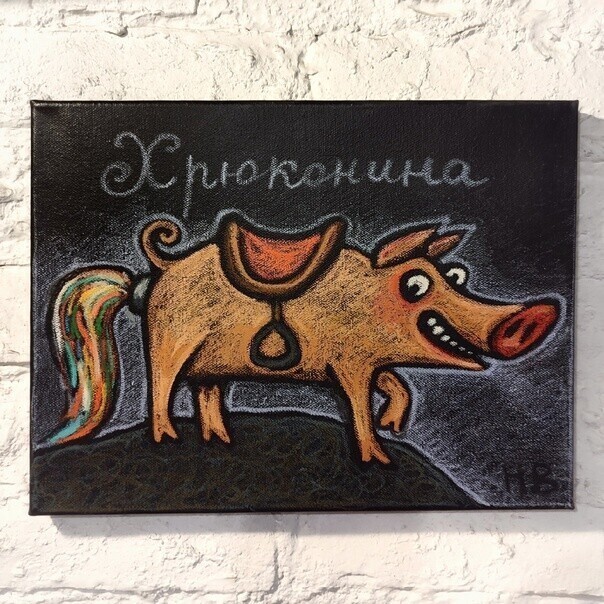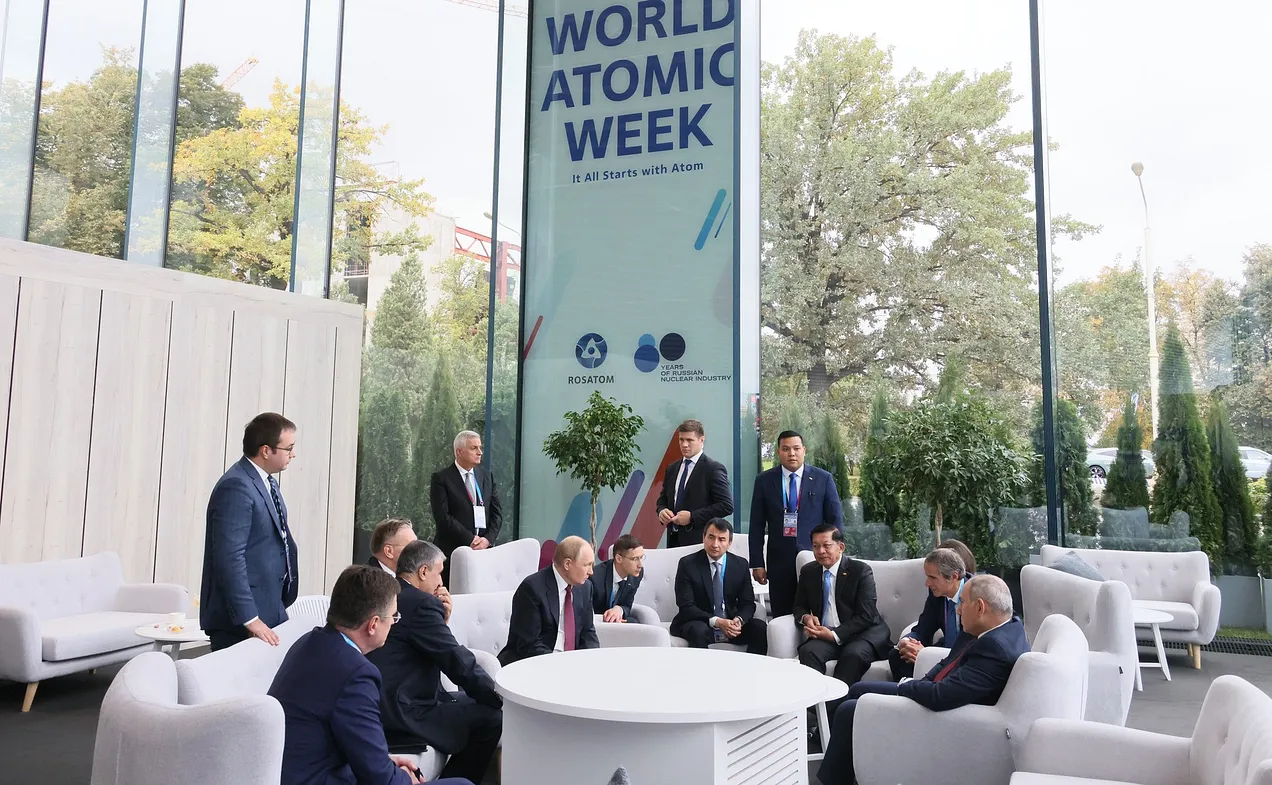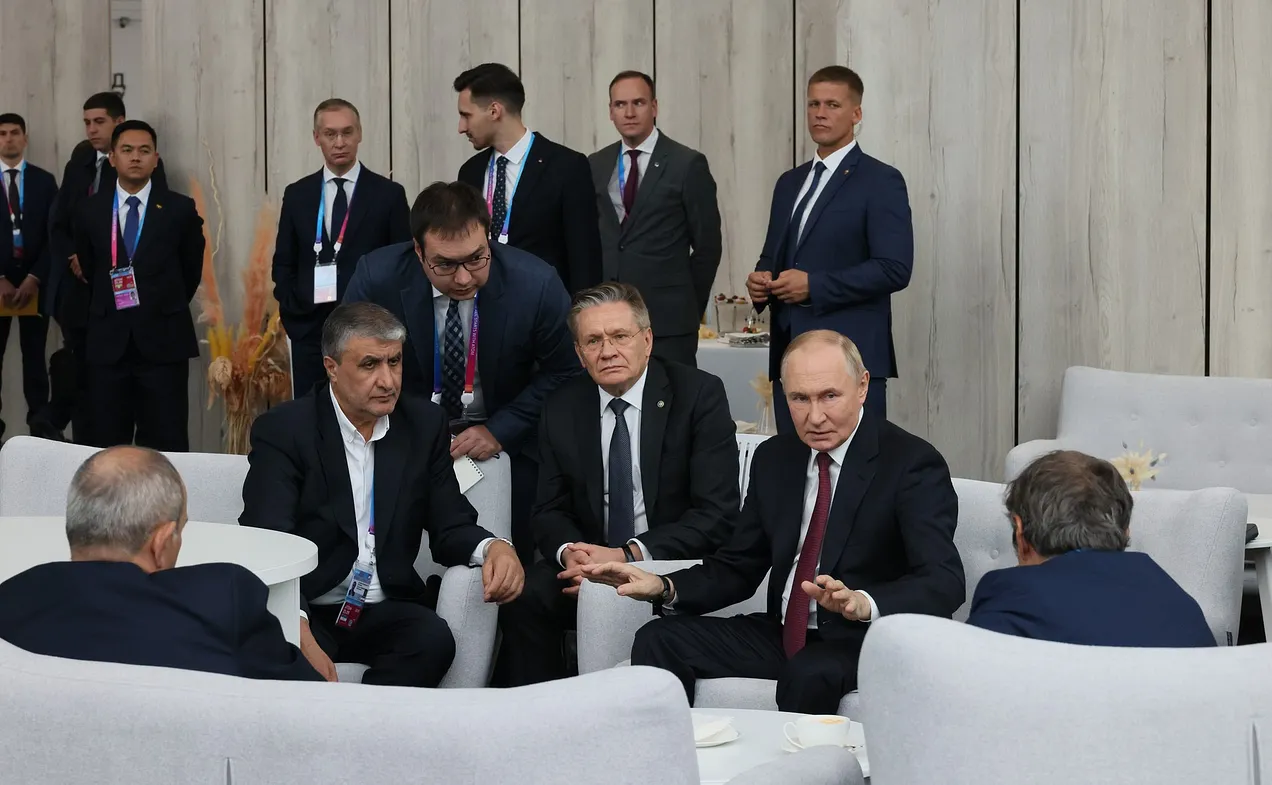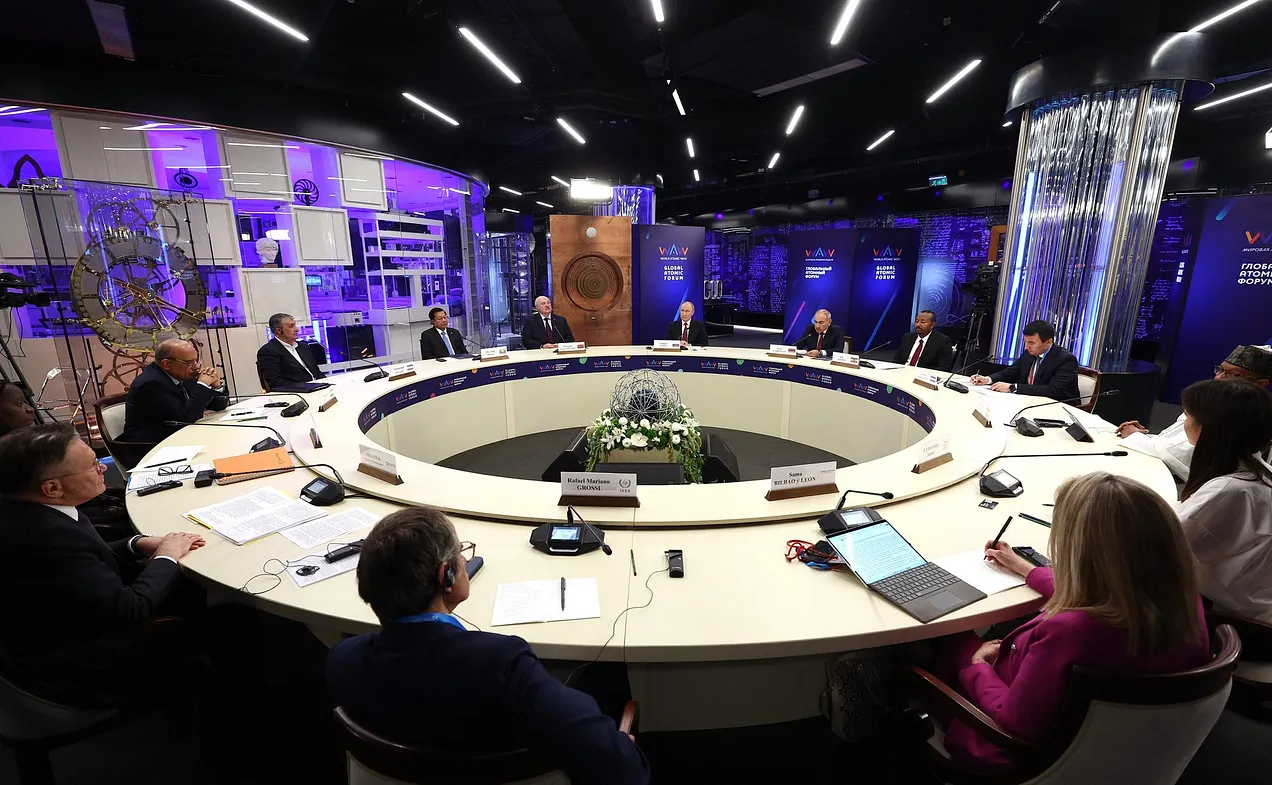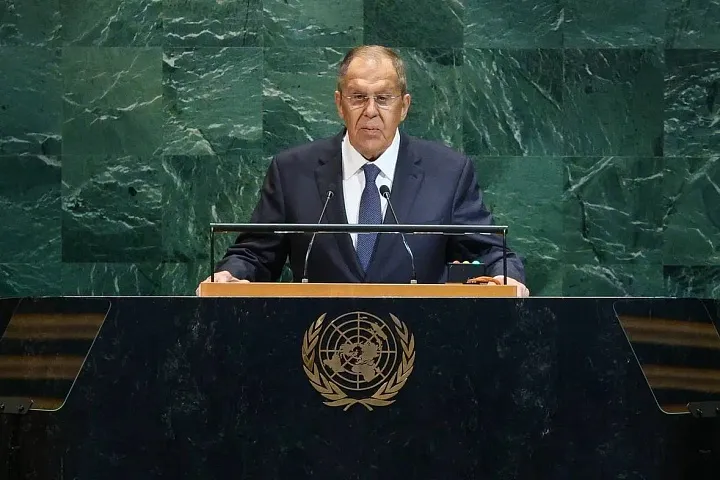
By John Helmer, Moscow @bears_with
When the Germans rolled through Russian defences in the Operation Barbarossa invasion of June 1940, the Soviet commander-in-chief Joseph Stalin ordered the executions of dozens of western army unit and air force commanders. Stalin’s reasons at the time were his suspicion of their treason; a demonstration effect throughout the armed forces; and a cover-up of Stalin’s personal culpability in rejecting intelligence warnings of the German invasion plans and refusing to order advance preparations himself.
In February 2022, when the US and the European Union attacked the Russian Central Bank’s (CBR) reserves, taking control over €260 billion ($300 billion) in value and preparing to transfer the interest on that principal, as well as tax, to repay their own Russia warfighting budgets and loans to the Kiev regime, there was no defence by the Russian Central Bank. There had been no advance preparations by the CBR for the likelihood of the attack. No one at the CBR has been suspended, dismissed, retired, or shot.
On the contrary, “I want to assure you that Russia’s financial authorities – the Government of the Russian Federation and the Central Bank – are acting professionally,” President Vladimir Putin declared as recently as last week at the Eastern Economic forum in Vladivostok. “Let me refrain from evaluating the Central Bank’s work. Let me note instead that our Central Bank is highly respected across the international finance community.”
In 2015 Euromoney, a publication owned by a UK private equity investment fund, announced it was giving Elvria Nabiullina (lead image) its “Central Bank Governor of the Year” award.
In 2017, The Banker, published in London by the Anglo-Japanese Financial Times, named Nabiullina its award winner as Central Banker of the year in Europe.
The Kremlin press office was asked what Putin was referring to in his Vladivostok reference to the “high respect across the international financial community”. The press spokesman replied: “Unfortunately, we can’t comment on this statement”.
In Putin’s Vladivostok speech, he not only defended Nabiullina and the Central Bank’s performance. He also claimed he doesn’t recommend believing the Russian economists who have been critical of that performance – and he won’t accept criticism of Nabiullina whose third 5-year term Putin pushed through a State Duma vote in April 2022. Unless the current law is changed, Nabiullina cannot remain as CBR governor beyond June 2027.
“The truth is, you should proceed from your own experience,” Putin said last week, “rather than seeking the opinions of those who like to voice their views online. Instead, I suggest you consult the opinions of experts if you truly want to get to the essence of the issue that concerns you. I am not saying anything revolutionary here. But even among specialists, views differ. Take prices, for example. Rising prices are, essentially, inflation. The Central Bank is working to curb this inflation and bring it back to the well-known and necessary target of no more than 4–5 percent. But this requires keeping the key rate high, which raises concerns for those engaged in real production. Many people here in this hall will no doubt say: ‘This is unacceptable, it is impossible, the key rate must be sharply reduced.’ But if that happens, prices will only rise further.”
In fact, one week later, on September 12, the CBR announced it was cutting the rate from 18% to 17%; that was 100 basis points less than the 2% cut most Russian economists had been forecasting. The CBR press release claimed: “The Bank of Russia will maintain monetary conditions as tight as necessary to return inflation to the target in 2026. Further decisions on the key rate will be made depending on the sustainability of the inflation slowdown and the dynamics of inflation expectations. According to the Bank of Russia’s forecast, given the monetary policy stance, annual inflation will decline to 6.0–7.0% in 2025, return to 4.0% in 2026 and stay at the target further on… Proinflationary risks still prevail over disinflationary ones in the mid-term horizon. The key proinflationary risks are associated with a longer upward deviation of the Russian economy from a balanced growth path and high inflation expectations, as well as with the deterioration in the terms of external trade. A further decrease in the growth rate of the global economy and oil prices in case of escalating trade disputes may have proinflationary effects through the ruble exchange rate dynamics. Geopolitical tensions remain a significant uncertainty factor. Disinflationary risks involve a more significant slowdown in domestic demand.”
Defending herself at a press conference, Nabiullina claimed the only options she had considered were leaving the rate unchanged or reducing it by one percentage point. “According to Nabiullina, among the arguments in favor of keeping the rate unchanged was a significant easing of monetary conditions and the need to assess the consequences of earlier decisions. In addition, the Central Bank needs to get more information about what the future fiscal policy will be.”
Reacting to Putin’s recommendation to “consult the opinions of experts”, the mainstream business media in Moscow reported the majority opinion remained as negative towards Nabiullina and as critical of the CBR rate at 17% as the media and their experts had been before this month’s rate decision.
According to a report by the Moscow business newspaper RBC, “more than half (16 out of 30) of the economists participating in the regular RBC consensus forecast – analysts of the largest banks and investment companies — they said they were expecting a reduction in the key rate by 200 basis points to 16%. Eight more of the group told RBC they believed the CBR would lower the rate to 17%; only one predicted that the rate would remain, and another predicted that it would decrease immediately to 15%.”
In a parallel poll of senior economists by Vedomosti, “only a minority said they were anticipating Nabiullina’s 100 bps rate cut — 8 out of 23. Three more doubted the decision and predicted that it could fall to both 16 and 17%. 12 economists assumed that the regulator would lower the rate to 16%.”
Not only were most of the senior macroeconomic planners outside the government contradicting both Putin and Nabiullina, albeit not saying so explicitly. On September 14 Sergei Glazyev, once a Kremlin economic advisor and now the economist in charge of union state planning by the Russian and Belarus governments, attacked Nabiullina explicitly. “The Central Bank’s leadership once again halted economic growth with the potential for output growth of 8% per year and led the situation to another collapse in the ruble exchange rate. Then there is a surge in inflation again and an increase in the [CBR rate] percentage to combat it. The Central Bank has been driving the economy in this vicious circle for many years in the interests of currency speculators. There is really no ‘Inflation targeting’; in fact, the Central Bank’s management serves the interests of speculators by suppressing investment loans and encouraging capital exports abroad. They act strictly according to the instructions of Washington financial organizations, blocking the development of the economy and undermining the military-industrial complex.”
CENTRAL BANK OF RUSSIA KEY RATE

Source: https://tradingeconomics.com/russia/interest-rate
CBR rate sheet: https://view.officeapps.live.com/op/vie ... BROWSELINK
Announcement of latest rate cut to 17%, September 12, 2025: https://view.officeapps.live.com/op/vie ... BROWSELINK
AVERAGE MORTGAGE RATES IN RUSSIA, 2020-25

KEY=top line, for all loans, middle=primary market, bottom=secondary market
Source: https://frankrg.com/data-hub/category/m ... hart/29497
OFFICIAL INFLATION RATE, CONSUMER PRICE INDEX, AUGUST 2020-AUGUST 2025

Rosstat, source: https://tradingeconomics.com/russia/inflation-cpi
Glazyev remains only the Putin appointee and government economist who has publicly opposed Nabiullina since she was first appointed to the CBR in mid-2013. However, Putin has been steadily ignoring Glazyev’s advice and demoting his rank. In April of this year, he was removed from the Eurasian Economic Commission (EEC, aka EAEU ) where he had held ministerial rank since 2019, and given the replacement job of secretary overseeing the economic planning of the union between Russia and Belarus. “Vladimir Putin and I have agreed that your contribution to building the Union State must be significant,” Belarus President Alexander Lukashenko announced. “He has a good opinion of you. My opinion is well-known to you as well, so we have made up our minds. Since Dmitry Mezentsev’s term of office is coming to an end and he is assuming another post, we decided to appoint you as the head and driving force of our integration union, responsible for managing the entire apparatus of the Union State. I think the outcome will be a good one.”
Putin ignored Glazyev’s new appointment. There is no record in the Kremlin archive of Putin’s good opinion of him. The timing of Glazyev’s job change followed Putin’s decision to renew Nabiullina’s term until 2027, ending Glazyev’s public campaign for replacing her.

Sergei Glaziev’s (extreme left) last official appearance at a Kremlin economic advisers’ meeting with President Putin on March 12, 2014. The others were (clockwise) Finance Minister Anton Siluanov, Prime Minister Dmitry Medvedev, Presidential Aide Andrei Belousov, Bank of Russia Governor Elvira Nabiullina and Alexei Kudrin, then titled Dean of St Petersburg State University and member of the Presidential Economic Council Presidium.
Glazyev began his government career as a trade minister during the first Yeltsin administration; then a member of the anti-Yeltsin coalition of 1996 led by Alexander Lebed and Dmitry Rogozin. Between 2012 and 2019 Glazyev was an official economic adviser to Putin but he was forced out of his Kremlin role by Kudrin and removed to the EEC, the bloc of former Soviet states coordinating customs, central banking, trade and fiscal management policies together. Follow the Glazyev archive here.
Follow the conflict over Nabiullina’s rule at the Central Bank in this archive. In parallel, follow Glazyev’s career as one of the great losers of Kremlin politics still on the official payroll.
In the sampler which follows, here is a selection, translated verbatim, of the most pointed public critiques of the Central Bank and Nabiullina which the President recommended last week as “the opinions of experts if you truly want to get to the essence of the issue”. Over the past decade he has dismissed them all – the individuals, the arguments, the evidence.
 July 14, 2023 — Sergey Glazyev: The Central Bank went against Vladimir Putin
July 14, 2023 — Sergey Glazyev: The Central Bank went against Vladimir Putin “The Central Bank has gone against Vladimir Putin, effectively overturning his decision. Sergei Glaziev uncovered the conspiracy of Elvira Nabiullina and currency speculators. It was this factor that provoked the colossal collapse of the ruble, Glazyev, the academician of the Russian Academy of Sciences, is convinced. Despite the powerful devaluation of the ruble, the Central Bank has withdrawn from solving problems in the foreign exchange market. The head of the Bank, Elvira Nabiullina, has said that nothing threatens financial stability in Russia and that any course is acceptable for the Central Bank, economic analyst Yury Pronko has reported on the Tsargrad program, Первого русского. According to the CBR, the reason for the ruble’s fall is quite understandable and prosaic: they say that imports have recovered, and therefore the trade balance has shifted slightly. In addition, Nabiullina has laughed off the ‘conspiracy theory’ that the Bank of Russia and the Ministry of Finance are deliberately weakening the national currency in an effort to increase export revenues to the budget, whose deficit is breaking records.
The real reasons for the collapse of the ruble were revealed live by Academician of the Russian Academy of Sciences, Sergei Glazyev. He believes that while this conspiracy theory is really far from reality, there is a very specific collusion between the Central Bank and the currency speculators. The expert explained that speculation in the foreign exchange market, with the full connivance of the monetary authorities, is primarily carried out by banks, including the state-owned ones. They have received cheap loans, thrown them into the foreign exchange market, bought dollars and euros and put pressure on the depreciation of the ruble, in order to sell the currency and cash in on it. And they have joyfully reported to the country’s leadership that, they say, although the crisis is really a crisis, we are having super profits.
Tsargrad’s source said that this policy of free floating the ruble exchange rate, which is carried out by the Central Bank and the Ministry of Finance has unfortunately turned the entire Russian banking sector into currency and financial speculators. Instead of lending to investments, the banks profit much more from speculation against the ruble exchange rate. Thus, they upset our entire economic system and disrupt the revival of the economy. But this does not prevent them from enjoying their super profits; they are achieved through the depreciation of the national currency. Nabiullina’s attempt to justify the devaluation by the shift in the trade balance is ‘pathetic babble,’ Glazyev added.
He noted that despite some shift towards imports, the export-import balance still remains positive. So the main reason for the reduction in the supply of currency, which began last year, is that the Central Bank secretly – secretly! — canceled the President’s instruction to introduce the mandatory sale of foreign exchange earnings. Glazyev recalled that a year ago, the ruble exchange rate rose significantly after President Putin, in a difficult situation of growing anxiety and panic, decided to introduce a mandatory sale of 80% of foreign exchange earnings, which immediately filled the market with currency and the ruble went up.
The Central Bank then completely withdrew from solving the problems, leaving the Kremlin to deal with these problems. When Putin solved them, the regulator began to slowly loosen currency restrictions. And now we again have no mandatory sale of foreign currency earnings. Moreover, the Central Bank made it clear to exporters in every possible way that they did not need to sell foreign currency earnings: they say — keep them in foreign accounts, the strengthening of the ruble is not beneficial either to you or to speculators.
The source of Tsargrad also pointed out that the stability of the ruble exchange rate is a necessary condition for investment growth, as well as for price stabilization. Therefore, targeting inflation but at the same time throwing the national currency into free circulation is a ‘managerial absurdity’, which, however, is systematically implemented by the Central Bank.
How can you be so stupid? The Central Bank keeps saying the same thing all the time: they say that inflation targeting involves free floating of the exchange rate. This is just managerial nonsense. We have already gone through this vicious cycle many times, when the Central Bank condones speculators in the collapse of the ruble and then provokes an inflationary wave, Glazyev has observed. He explained that in any situation, it is the devaluation which causes the acceleration of inflation to a greater extent; the scale of the impact of the collapse of the exchange rate, if we analyze the price growth factor, sometimes reaches up to 70%.

Source: https://www.ceicdata.com/en/indicator/r ... vings-rate
Then the monetary authorities raise interest rates and bring down investment lending. Our [gross savings] accumulation rate is extremely low, and it’s getting even lower. This causes technological degradation of the economy, loss of competitiveness and creates prerequisites for a new devaluation of the ruble.”
 June 26, 2024 — Not because of the Central Bank, but in spite of it : Glazyev revealed how Nabiullina disobeyed Putin
June 26, 2024 — Not because of the Central Bank, but in spite of it : Glazyev revealed how Nabiullina disobeyed Putin “Despite the obsolete forecasts of the Bank of Russia copied from IMF analysts, Russia is experiencing economic growth. However, this is not happening thanks to the Central Bank, but in spite of it, said Academician of the Russian Academy of Sciences Sergei Glazyev in the Tsargrad program, Царьград. Главное.
If the regulator allowed banks to issue loans at a normal interest rate, which would allow industrial enterprises to remain profitable, then import substitution would begin to fully develop in the country. Glazyev, however, revealed how the chairman of the Central Bank, Elvira Nabiullina, disobeyed Russian President Putin, thereby slowing down the production of domestic products.
In order for import substitution to take place, loans are necessary. Import substitution programs have huge potential. Almost half of our final product market was imported. But the European Union is closed to us. And so, it would seem, the President gave instructions: let’s increase our production and engage in import substitution. But the Central Bank has done nothing to stimulate these programs – it’s even been operating to counter to them. And yet there is still some progress. Import substitution is actually underway even without normal rates. Today, we produce 20 percent of what was produced and bought in the EU ourselves. It’s not bad. But there are still huge opportunities, large production facilities are still idle.
The output of finished metal products, except machinery and equipment, has already increased by 30%. The production of electrical equipment increased by 17%. The production of other vehicles and equipment, which is the largest sector, increased by 14%.
This huge output potential is just beginning to be filled in the sector of mechanical engineering industry. Only incompetent people who don’t want to change anything can say that the economy is overheated. They are used only to manipulating the key rate, and they don’t care about anything else, declared the academician of the Russian Academy of Sciences. He recalled that when sanctions were imposed on us, the Central Bank, following the IMF, targeted Russia at minus-8% of GDP in its forecasts.
But there was no such fall. Moreover, our forecasts were correct last year: the economy grew by more than 3.5%. And before that, in 2021, it grew by more than 5%. The calculations of the Central Bank are based on unemployment figures; they say that there are not enough workers. That’s how they measure overheating.…”
 April 5, 2025 — Glazyev conducted an educational program with Nabiullina — on the same rake for the third time, no longer an accident but a system
April 5, 2025 — Glazyev conducted an educational program with Nabiullina — on the same rake for the third time, no longer an accident but a system “Sergei Glazyev gave an educational lecture to Elvira Nabiullina, who stepped on the same rake for the third time, having made a fundamental mistake with her macroeconomic forecast. This is no longer an accident but a system.
Every time on the eve of the new year, the Central Bank and other financial and economic departments issue a forecast that turns out to be twice as bad as Academician Sergey Glazyev pointed out in the Tsargrad program, Царьград. Главное. He recalled that when the ‘hellish sanctions’ began, the Central Bank targeted the economy with the prospect of a GDP reduction of 8%. At the same time, by contrast, many experts talked about the real possibility of getting a growth rate of plus 8%, as import substitution intensified.
There was no terrible collapse. However, the regulator continued to greatly underestimate expectations anyway. Western competitors have fled our market. This is very good for domestic production. But the monetary authorities did not want to understand this. In order for import substitution to take place on a full scale, it was necessary to provide loans. Loans for working capital and investments. In those areas where this was achieved thanks to government priorities, in the defence industry and in high-tech, the growth rates were double-digit.
But those sectors which could not get preferential loans and mechanisms for public procurement, respectively, could not develop. In other words, import substitution really affected only that part of the economy in which the state, represented by the government, was engaged directly. And in other areas, we see that imports from the West have been replaced by imports from the East — that’s all. It is the same even in the automobile industry, where it would also be possible to take advantage of the situation and start producing Russia’s own cars, emphasized Glazyev. He added that it is now almost impossible to take out a loan for the development of a risky but potentially a breakthrough project related to high technologies because there are no practical venture funds.
It will be extremely difficult for our companies to maintain their market positions if Western companies return. And how to do this in a situation where a competitor, whether in the West or in the East, has unlimited credit at 1%-2% per annum, while ours is an unrealistically expensive loan — simply unaffordable, to put it bluntly. Taking out a loan is the path to bankruptcy, and many have already gone through it. Especially when the interest rate rises, this immediately leads to tens of thousands of bankrupts. But none of the elite cares about that.”

Public economist and member of the now defunct Anti-Crisis Council, Mikhail Khazin; for the backfile on Khazin’s economic critiques of state policy, click to read. https://johnhelmer.net/?s=khazin As a Yeltsin Administration economic policymaker in the 1990s, Khazin clashed with superiors like Yegor Gaidar, Anatoly Chubais and Alexei Kudrin over their corruption. https://obsoletecapitalism.blogspot.com ... saker.html
 February 28, 2023 – How Nabiullina tried to shut Glaziev up
February 28, 2023 – How Nabiullina tried to shut Glaziev up “The current head of the Central Bank of Russia, as well as other prominent Russian liberals, very much do not want any alternative models of the country’s economic development to become widespread and official. This was stated on air of Solovyov Live by economist Mikhail Khazin. As the expert explained, it is for this reason that when Sergei Glazyev, a prominent Russian economist, academician of the Russian Academy of Sciences and concurrently Minister for Integration and Macroeconomics of the Eurasian Economic Commission, officially outlines his ideas for overcoming the crisis and Russia’s transition to economic growth, he is immediately opposed. In particular, according to Khazin, the head of the Central Bank of the Russian Federation, Elvira Nabuillina, has appealed to the country’s Prime Minister, Mikhail Mishustin, with a request to silence Glazyev so that his proposals would not be heard in the public arena. As the expert explained, the head of the Central Bank has been very frightened by the appearance of the academician’s ideas in the official document flow. ‘It’s good that she didn’t write to Mishustin about asking him to kill him, just like it once was in the Hammurabi Code’, Khazin summed up.”
 March 29, 2023 — It became clear why Putin did not dismiss Nabiullina and Siluanov
March 29, 2023 — It became clear why Putin did not dismiss Nabiullina and Siluanov “There are no ouster plans, Russians were told why they should not expect in the near future the dismissal of Elvira Nabiullina and Anton Siluanov, who are ‘beloved’ by the people. Mikhail Khazin, a leading economist, did not hesitate to say this on the live radio show, Moscow Speaks.
According to Expert, at the moment the head of state is forced to keep these ‘financial geniuses’ in their places and not touch them, as their removal may lead to consequences in the form of further Western sanctions. Relatively speaking, ‘don’t tease the geese’ [aka, why make trouble].
That is why, in one of his recent speeches, Vladimir Putin expressed gratitude to Elvira Sakhipzadovna ‘for her effective work to stabilize the economy.’ ‘The head of state really cannot dismiss Nabiullina now and cannot even contradict her monetary policy,’ Khazin said. The economist believes that retaining the heads of the Central Bank or the Ministry of Finance in their current posts restrains the West, united against our country, from declaring a total sanctions regime.’
‘Putin can’t afford it, so he can’t fire Nabiullina. Russia does not need to escalate the sanctions regime at all now, and the departure of the current head of the Central Bank would certainly provoke the West to launch even more powerful restrictions,’ Khazin believes. I cannot presume to judge whether Khazin is right or wrong, but it is worth noting that the preservation of posts for these geniuses in conditions when ordinary people are impoverished really looks strange and not fully logical. There is probably a good reason why changing them is not beneficial or even dangerous, but they don’t tell us about it.”
 April 23, 2025 — It would be terrible, Khazin explained why Putin did not dismiss Nabiullina. But the chance to get rid of her will appear soon
April 23, 2025 — It would be terrible, Khazin explained why Putin did not dismiss Nabiullina. But the chance to get rid of her will appear soon “Mikhail Khazin explained why Vladimir Putin did not dismiss Elvira Nabiullina two years ago or even earlier: ‘[The effect] would be terrible.’ But the chance to get rid of her will appear soon, the economist assured. The monetary policy of the Central Bank is being openly criticized not only by experts, but also by representatives of the State Duma and the government. Moreover, this has been going on for several years. Harsh criticism was also voiced before the Special Military Operation, when the key rate and inflation were at a relatively stable level.
And all this time, the question has been in the air about how the Central Bank’s leadership still manages to stay in office. Economist Mikhail Khazin explained on the air of the Tsargrad program, Царьград. Главное, the reason why Russian President Vladimir Putin has not dismissed the head of the Bank of Russia, Elvira Nabiullina. According to the expert, there is a concealed inter-elite agreement. Weakening one group by displacing one of its major players could upset the delicate balance. But the chance to get rid of some liberals from their financial and economic bloc will appear soon.
I’ll just explain. If Putin had removed Nabiullina five years ago, we would have received a wild coordinated attack from the entire West. The cruelest one. That is, there would have been horror, horror, horror. If he had taken her off two years ago, it would have been just horror, but not horror-horror-horror. In six months, if he removes the current leadership of the monetary authorities, no one will even notice. So it’s not about economics, it’s about politics, emphasized Khazin. He also added that Western countries will suffer more as a result of the coming crisis, but noted that one cannot ignore the fact that the Russian economy is now in decline.
We have a very specific system. There are subtleties here. As for oil, there will be a war in the Middle East, and the price will be $ 200 per barrel. And with everything, we’ll be fine. Relatively speaking… Here we must be aware that a series of mass bankruptcies in the manufacturing business is beginning. The construction sites have stopped altogether. So what’s there to talk about? There is another argument to confirm that everything is falling – even for reinforced concrete, there is a sharp reduction in the volume of traffic, which even the official statistics show. Point taken!”

Mikhail Delyagin is currently Deputy Chairman of the State Duma Committee on Economic Policy. Before his election to the Duma as an oppositionist, he had a long career as an economic policy official in the Yeltsin Administration and then in the first decade of the Putin Administration; follow his career here; https://en.wikipedia.org/wiki/Mikhail_Delyagin for the backfile of his analyses in opposition to state policymaking, click to read; https://johnhelmer.net/?s=delyagin for his running commentaries, click here. https://t.me/delyagin
 June 6, 2025 — “Western sanctions are nothing compared to the sanctions of the Central Bank”: State Duma Deputy Mikhail Delyagin, broadcasting on Sputnik radio, commented on the decision of the Bank of Russia to lower the key rate by one percentage point. ‘Dollars are not particularly needed, unless the population anticipates further successes of Ms. Nabiullina and buys the dollar. But by destroying the economy, you suppress inflation for a short time, and then you are faced with a choice: either a sharp spike in inflation or killing the economy. I assume that the leadership of the Bank of Russia will choose the latter, but still our country has hopes for saving itself. First of all, Western sanctions are nothing compared to those imposed by the Bank of Russia and the Ministry of Finance – nothing when comparing the consequences. That’s the first thing. And secondly, the fact that we survived is to the credit of the government, which in 2020 transferred economic management to the foundation of digital platforms, and despite all the flaws of the budget system, they have qualitatively increased the efficiency of using budget funds’ said the economist.”
June 6, 2025 — “Western sanctions are nothing compared to the sanctions of the Central Bank”: State Duma Deputy Mikhail Delyagin, broadcasting on Sputnik radio, commented on the decision of the Bank of Russia to lower the key rate by one percentage point. ‘Dollars are not particularly needed, unless the population anticipates further successes of Ms. Nabiullina and buys the dollar. But by destroying the economy, you suppress inflation for a short time, and then you are faced with a choice: either a sharp spike in inflation or killing the economy. I assume that the leadership of the Bank of Russia will choose the latter, but still our country has hopes for saving itself. First of all, Western sanctions are nothing compared to those imposed by the Bank of Russia and the Ministry of Finance – nothing when comparing the consequences. That’s the first thing. And secondly, the fact that we survived is to the credit of the government, which in 2020 transferred economic management to the foundation of digital platforms, and despite all the flaws of the budget system, they have qualitatively increased the efficiency of using budget funds’ said the economist.”July 8, 2025 – “The real economy in Russia is rapidly dying. Against this background, by contrast, it is particularly clear how well things are going in the banking sector. In fact, the banks are the masters of the Russian economy. For this, they tirelessly publicly thank both Elvira Sakhipzadovna and her predecessors. And if something goes wrong with the banks, they are sure that the economy will be strangled for the sake of the banks’ well-being. For example, today they know perfectly well that if anything, the ruble will be weakened for them once again. And they don’t care what happens to the rest of the economy.”
August 25, 2025 – “The Bank of Russia is sufficiently independent. But it is not omnipotent. And even more to the point, Nabiullina is not omnipotent. It’s just that in order to remove her from the post of chairman of the Central Bank of the Russian Federation, a political decision by the president of the country is needed. And he’s busy with other things. Is the economy alive? It’s still living. Will there be an economic disaster tomorrow? No. Moreover, we have 4% economic growth (two years in a row! despite the sanctions and military actions!) Well, get off my back, I have other problems…”
September 12, 2025 – “DISAPPOINTMENT OF THE MONTH: Only yesterday I wrote that it would be logical to expect a rate cut of 2-4 percentage points. And this was not only my vision, but also the consensus among businesses, analysts, and ordinary people who face daily price increases and loan bondage. But the reality turned out to be disappointing, because the regulator has lowered the rate by only one percentage point to 17%. The market reacted instantly and unequivocally with loud disappointment. Everyone was waiting for at least 15%, but in the end they got a spit in the face. And what’s the picture now? Loans remain unaffordable, mortgages are unattainable for most, and businesses are essentially deprived of investments. Against the background of high inflation, this looks like a paradox — prices continue to rise, but there is no access to money. At the same time, the Central Bank does not seem to have heard either the President, the business, or the people. Nabiullina ignored all the signals, choosing caution where a decisive step was needed. And like the icing on the cake, the Moscow Stock Exchange index fell below 2,880 points. The economy is slowing down, new projects are not being launched, and the population is squeezed. And this is against the background of the fact that the American market is updating its highs.

Source: https://tradingeconomics.com/russia/stock-market
Let’s add here the news that the government is considering a moratorium on the bankruptcy of the metallurgists. This is a direct consequence: falling demand, expensive loans, companies are unable to delay their debt servicing. And now to the budget picture. The Ministry of Finance is already recording the risks: in 2025, the Russian budget may not receive up to 1 trillion rubles in income tax. The reasons are already known and follow from the regulator’s decision. Yes, so far, tax collection looks better than last year: 2.3 trillion rubles in eight months, an increase of 77%. But for how long will these statistics be relevant? By the end of the year, we risk reaching only 3.4 trillion rubles against the planned 4.2 trillion rubles. The Ministry of Finance, of course, says that it is too early to draw conclusions and it is possible to compensate for the holes through privatization and fines. But these are temporary measures, not a solution.”
 Although the Communist Party (KPRF) is the leading opposition faction in the State Duma, the speeches and articles of the KPRF deputies in the party media and in the record of Duma debates when Nabiullina has appeared to make her annual reports to parliament have been less critical of her and more accommodating of her policies than the non-communist opposition.
Although the Communist Party (KPRF) is the leading opposition faction in the State Duma, the speeches and articles of the KPRF deputies in the party media and in the record of Duma debates when Nabiullina has appeared to make her annual reports to parliament have been less critical of her and more accommodating of her policies than the non-communist opposition.
Source: https://msk.kprf.ru/2022/04/19/216155/ Reporting on Nabiullina’s testimony in the Duma on April 19, 2025, some of the KPRF deputies were hostile; others supportive. When the renewal of her term as governor went to a vote in April 2022, the KPRF voted in favour. Since then KPRF criticism has grown. “The Communist faction has repeatedly expressed its position on the work of the Central Bank of the Russian Federation. We consider it unsatisfactory, and in many ways it has led to the problems that our economy is currently facing. What has become of the gold and foreign exchange reserves exported from Russia alone, which as a result turned out to be simply confiscated by representatives of the collective West! At the same time, in the course of communication, Nabiullina stated that she was practically ‘proud’ that the West had managed to confiscate only half of Russia's reserves. I asked Nabiullina two questions: will the Central Bank promote the development of production, and what will happen to the reserves as a result? My questions and her answers are in the video [Youtube has removed]. At the same time, it is important to remember that the economic growth, which Nabiullina says in her answer to the question of whether the Central Bank is going to invest in the development of production in the country, is an outright substitution of concepts. It is necessary to understand that economic growth and production growth are two separate and fundamentally different indicators.”
https://johnhelmer.net/central-bank-gov ... more-92335
I do take exception with the statement that Stalin was indulging in CYA at the beginning of Barbarossa. The other reasons are plausible.
Some unwelcome news there, but if anyone knows the Russian economy it's Helmer and not the cheerleaders. To be expected, it is a capitalist economy where finance will inevitably come to dominate. Unless there's a party to control the bankers, as in China. Putin betrayed the state to capitalism once, will he do it again?
As for the KPRF, well, their leadership is pretty much Social Democratic, the shameful bastards.
******
Ivolginsky datsan

Photo from Ivolginsky Datsan, which I visited in August.3
It is located in Buryatia, about an hour's drive from Ulan-Ude. We went there with Buryat tankers. In the first photo, a communist Buddha with a hammer and sickle from the local Buddhist university, where Russian lamas are trained, although they are sent to India for an internship of 8-10 years. Photo from the university building. From the history of the datsan. From this poster, you could find out that in 1973, lamas dug up and reburied Khambo Lama to "fight floods in the USSR." I have already written about the story with "prayers for frost" in 1941. https://colonelcassad.livejournal.com/10013746.html In the bottom photo, lamas and Nicholas II. Look at the year and determine your animal. University schedule. What they teach. If anything, our Buddhists are guided by the Dalai Lama, who fled Tibet in 1959 and is in a tough conflict with China, which accuses him of undermining Chinese sovereignty over Tibet and having affairs with the Americans. They should soon have a new Dalai Lama there and a religious schism is possible, since the Dalai Lama may have a successor in exile, and the Chinese are interested in the appearance of a new loyal Dalai Lama in Tibet. To understand the severity of the conflict - this August China officially stopped all contacts with the President of the Czech Republic because of his meeting with the Dalai Lama. China considers this an encroachment on its sovereignty. Since the Dalai Lama is already 90 years old, we may soon see a schism among Buddhists. And here is this building, which Stalin allowed to be built in 1946. The Ivolginsky Datsan started from it. It was built in a different place, but later moved to the current location almost unchanged, although later expanded. But the interior has been preserved in the style of the 40-50s. Stalin is not particularly criticized here, but he is not particularly remembered either. Although in fact, he played the same role for Buddhists as for the Russian Orthodox Church with the restoration of the patriarchy. The seedlings have just been planted, so part of the datsan has not yet had time to overgrow. When walking around the territory of the datsan, you can notice a large number of drums with mantras, which you can spin if you wish. Believers when visiting the datsan must make at least a circle around the territory of the datsan, spinning many different drums. You can spin a large one. There are more mantras there. Houses of residents on the territory of the datsan. No special excesses or luxury were noticed. In general, if you do not take into account the temples themselves, all the rest are quite modest. The residence of the main Buddhist in Russia. If you wish, you can ask to be received in this house. In the mornings, lamas hold briefings there to discuss current issues. I don't remember what kind of building this is next to the university. The main temples are in the datsan. The "Incorruptible Body" is kept in this temple. But more about that later.








The decoration has many references to India and China.

Twisting again.

The paint has peeled off in some places and needs to be updated.

I have already written about this monument https://colonelcassad.livejournal.com/10061231.html . Beautiful.

This is the newest of the recently opened temples. When I was here in 2023, it was still under construction. Some of the decoration materials were brought in from India...

Chinese influence.

In one of the buildings, they send camouflage nets and ponchos to the North Military District. These two women have been working there since 2022. They have been helping the front for almost 4 years now.
They say there were more people at first, but now there are only those who work until Victory.

And here, too, there is a reminder that it is wartime. And this help is certainly important.

The decoration is "expensive and rich."

Security.

And this is us being led to see the "Incorruptible Body".
 It is guarded by white striped tigers.
It is guarded by white striped tigers.Since you can't take pictures in the temple itself, here is an illustrative photo. The "Incorruptible Body" is the mummy of Dashi-Dorzho Itigelov, placed in a glass sarcophagus.
Buddhists believe that he is neither alive nor dead at the same time, and his body is incorruptible, hence the "Incorruptible Body". At the entrance, everyone is tied with a blue ribbon, and when leaving, it is tied in a knot.
Small offerings like rice or coins can be left at the "Incorruptible Body". No fools running around shouting "Bury the incorruptible body in a Christian manner" were found.
From the funny. There are two thrones for secular leaders in the temple. As the tour guide told me, Putin came, he was offered to sit on a large throne, he refused.
Medvedev came - he sat down immediately and with pleasure. And the president of Mongolia also sat. On the throne.

20250815_121619.jpg
Next to the entrance to the datsan there is an establishment where they serve buza (a Buryat variation of khinkali, which is better in my opinion). With a loud slogan "We have the biggest buza".
Advertising, frankly speaking, greatly exaggerates their size, but they are very tasty.
In general, it was a very interesting excursion. Even if you are far from religion in general and Buddhism in particular, do not neglect visiting this place if you are in Buryatia.
It is interesting even from a purely cultural and historical point of view. There is a lot of influence of Chinese (Tibet is China) and Indian traditions here.
https://colonelcassad.livejournal.com/10070316.html
Of course the current Dali Llama is a CIA tool and a pedo...
Monument to Dzerzhinsky unveiled in Nakhodka
September 15, 21:01

Somehow I missed it. On September 12, a monument to the founder of the All-Russian Extraordinary Commission, Felix Edmundovich Dzerzhinsky, was ceremoniously unveiled in Nakhodka.
Over the past year, 7-8 monuments to Iron Felix have already been unveiled across the country. After the installation of the monument to Dzerzhinsky at the headquarters of the Foreign Intelligence Service, the process accelerated and, with the support of both current state security officers and retired veterans of the KGB and FSB, Dzerzhinsky is returning to the public sphere. Previously, he was a private guest in the form of portraits in the offices of state security officers. But now a certain wave has formed for the restoration/installation of new monuments to Iron Felix.
( Collapse )
This year Dzerzhinsky has even overtaken Stalin, to whom 5-7 monuments are traditionally erected per year. And this year the date is not even a round one, nevertheless. Apparently the demand for the fight against external and internal enemies in connection with the SVO has additionally actualized the theme of a merciless fight against them. And who else but Dzerzhinsky is suitable for this role? Of course, there is also Lavrenty Pavlovich, but he has not yet been rehabilitated. The cries of the "tsarebozhniki" about the "Red Terror" and "Horrors of the Cheka" touch few people, so monuments to Iron Felix are flying in with a bang.
But everyone understands perfectly well that justice will prevail when Iron Felix returns to Lubyanka. I hope that by the 150th anniversary of Dzerzhinsky's birth they will mature to this.
P.S. We study the selected works of the prominent revolutionary and Chekist Felix Edmundovich Dzerzhinsky. You can download his works here https://t.me/boris_rozhin/179334?comment=14985115 The best thing about a person is not what is written about him, but what he himself wrote. This way you can form your own opinion about the work of the historical figure under discussion. At one time, this is how I formed my approach to the same Stalin. When you read 14 volumes of collected works, the person appears completely differently.
https://colonelcassad.livejournal.com/10073009.html
Krasnoyarsk Mayor Resigns Over Bribery
September 15, 16:49

Effective managers news.
The mayor of Krasnoyarsk has submitted his resignation. Moreover, he did so while already under arrest. Moreover, he has been under arrest since August 4 and has already been transferred to Moscow. But he submitted his resignation more than a month after his arrest.
Vladislav Loginov was caught accepting large bribes. When he was deputy mayor of the city, he received 180 million rubles as a bribe from a commercial organization + this same organization built him a bathhouse as a bribe. Loginov used the money he received to ensure that this organization won a competition to perform road works in Krasnoyarsk, where it was possible to earn a lot, which justified the amount of the bribe.
In general, the scheme resembles the machinations in the "Kursk Region Development Corporation", when local officials headed by Governor Smirnov received kickbacks from shady firms that profited from contracts for the construction of fortifications in the Kursk Region, and some of the contracts were fictitious. Here, they traditionally profited from road construction.
https://colonelcassad.livejournal.com/10072324.html
(Many more images at link.)
In 2025, the situation worsened sharply...
September 15, 23:02

Although the grant-eaters were removed from the American allowance several months ago, the whining about it continues.
The approach that "Well, we didn't receive anything from USAID, but we also suffered..." is especially touching
. In fact, in addition to USAID itself, many grant-eater programs were closed. The food supply has narrowed and those remaining on the market of cheap trash propaganda are fighting with each other for the remaining grants from the globalists and the EU. Hence the constant squabbles within the "opposition" and clownish actions in the hope of dwindling donations. Not only will everyone survive the difficult period.
The closure of USAID was a real kick in the pants.
https://colonelcassad.livejournal.com/10073279.html
Google Translator
*****
Gas pipeline diplomacy at Europe’s expense
Lorenzo Maria Pacini
September 15, 2025
The energy market is too important to be left at the mercy of European follies.
Power of Siberia 2 on the attack
Driven by ideologies and slogans lacking in substance, the European Union has handed over its main source of energy to China, after renouncing its energy relations with Russia. Not out of inevitable necessity, but due to strategic miscalculations and total subordination to U.S. interests, the EU has made yet another ill-advised choice, the consequences of which will soon be painfully understood.
At the recent Shanghai Cooperation Organization summit held in Tianjin, Russia, China, and Mongolia signed a binding memorandum regarding the gas pipeline project called Power of Siberia 2. With a length of 2,600 kilometers and a cost of $13.6 billion, the infrastructure will transport 50 billion cubic meters of Russian gas annually from the Arctic to northern China via Mongolia, completely bypassing the European market.
The economic consequences are significant. Currently, 50 billion cubic meters of natural gas are worth $16.5 billion in Europe. The same amount of U.S. LNG would cost around $25 billion, while direct purchases from Russia – based on agreements signed by Gazprom with Beijing – would cost between $6 and $6.5 billion. That low-cost Russian gas, once the engine of German and Western European industry, will now take the eastern route, guaranteeing China stable and affordable supplies.
Driven by the Anglo-American elites, who have forced Europe to sever its energy ties with Moscow, European chancelleries have ended up strengthening Beijing’s strategic position. Today, Europe is paying dearly for U.S. LNG, losing industrial competitiveness and sliding into recession: an ideal context for fuelling internal tensions exacerbated by economic crises and increasingly costly military supplies from overseas.
President Xi Jinping has called Power of Siberia 2 a milestone in the “no limits” strategic partnership with Russia, securing a safe land-based energy corridor for Beijing. This is not just a trade agreement, but a genuine geopolitical realignment: Russia consolidates a stable buyer, China obtains guaranteed long-term supplies, and Europe witnesses the erosion of its industrial and political centrality.
The words of the EU’s High Representative for Foreign Affairs, Kaja Kallas, aptly express the mindset of the European ruling class, shaped by decades of U.S. influence: ‘Russia was addressing China: “Russia and China, we fought in World War II, we won World War II, we defeated the Nazis…” and I thought, “Okay, this is new.” If you know your history, many questions come to mind. I can tell you that nowadays people don’t read and don’t remember much history. You can see that they believe these narratives.’
Moving away not only from political rationality but also from cheap Russian gas, under Anglo-American pressure Europe has effectively compromised any prospect of industrial recovery and economic sustainability. The global energy map is being redrawn: Europe’s decline is accelerating, internal divisions within the West are worsening, and the Anglo-American elites are seeing their influence slip away, while the former colonies – particularly China and India – are emerging as new strategic and economic poles. Europe thus risks the definitive collapse of its industrial and geopolitical relevance, while the only historically successful project of the Anglo-American powers is also faltering: the self-celebrated “rules-based international order,” proclaimed as indispensable, inevitable, and dominant.
How much is the market in Europe worth?
Let’s talk about data. Until 2021, the last year for which we have data before the start of the SMO in Ukraine, the Russian gas market in Europe accounted for 45% of regional gas demand, mainly LNG. Approximately 150 billion cubic meters (bcm). Between 2022 and 2023, we fell by 70% in two years, from 150 to 43 bcm. In 2024, there was a small recovery, up to 54 bcm, equal to 18% of demand. For 2025, estimates point to 13% of demand, which is a decidedly negative figure.
Gas is mainly used in three sectors: Domestic and civil heating, which accounts for around 40% of demand; Industry (chemicals, steel, glass, fertilizers), which accounts for 30%; Electricity generation, accounting for around 20–25%. Studies by the International Energy Agency (IEA) estimate that Europe cannot fall below 250–270 bcm/year without compromising key sectors (energy-intensive industries and heating), bearing in mind that until 2021 consumption was stable at around 400 bcm. Below this threshold, rationing or blockades of entire production sectors would have to be introduced.
So, numbers in hand, energy products from the East are indispensable for Europe, like it or not. And, again, in a nutshell, sanctions against Russia have not changed its turnover, but ours, as well as our lifestyles, throwing us into a situation of enormous disadvantage and difficulty.
The new threats of economic restrictions against Russia are not only a “dangerous” and counterproductive measure, but also reveal the profound inconsistency that characterizes the West as a whole. In short, it is the wrong path to take. The rhetoric of direct warfare, even through tariffs and rapid market manipulation, is not convenient for anyone.
What is needed is diplomacy and negotiation to address the real causes of the conflict and resolve them, not impractical ultimatums based on the idea of an unconditional ceasefire, ignoring the deep-rooted reasons that motivated Russia from the outset. The West today demands an unconditional ceasefire; Russia will not accept it, nor will a new package of U.S. sanctions force it to do so. Returning to old dependencies would weaken Europe’s security and give Moscow a new advantage, which is why the European Commission wants none of it.
The energy market is too important to be left at the mercy of European follies, so the geo-economic soft power of multipolar powers must force EU member states to emancipate themselves from the Union and return to genuine energy sovereignty as soon as possible.
https://strategic-culture.su/news/2025/ ... e-expense/
